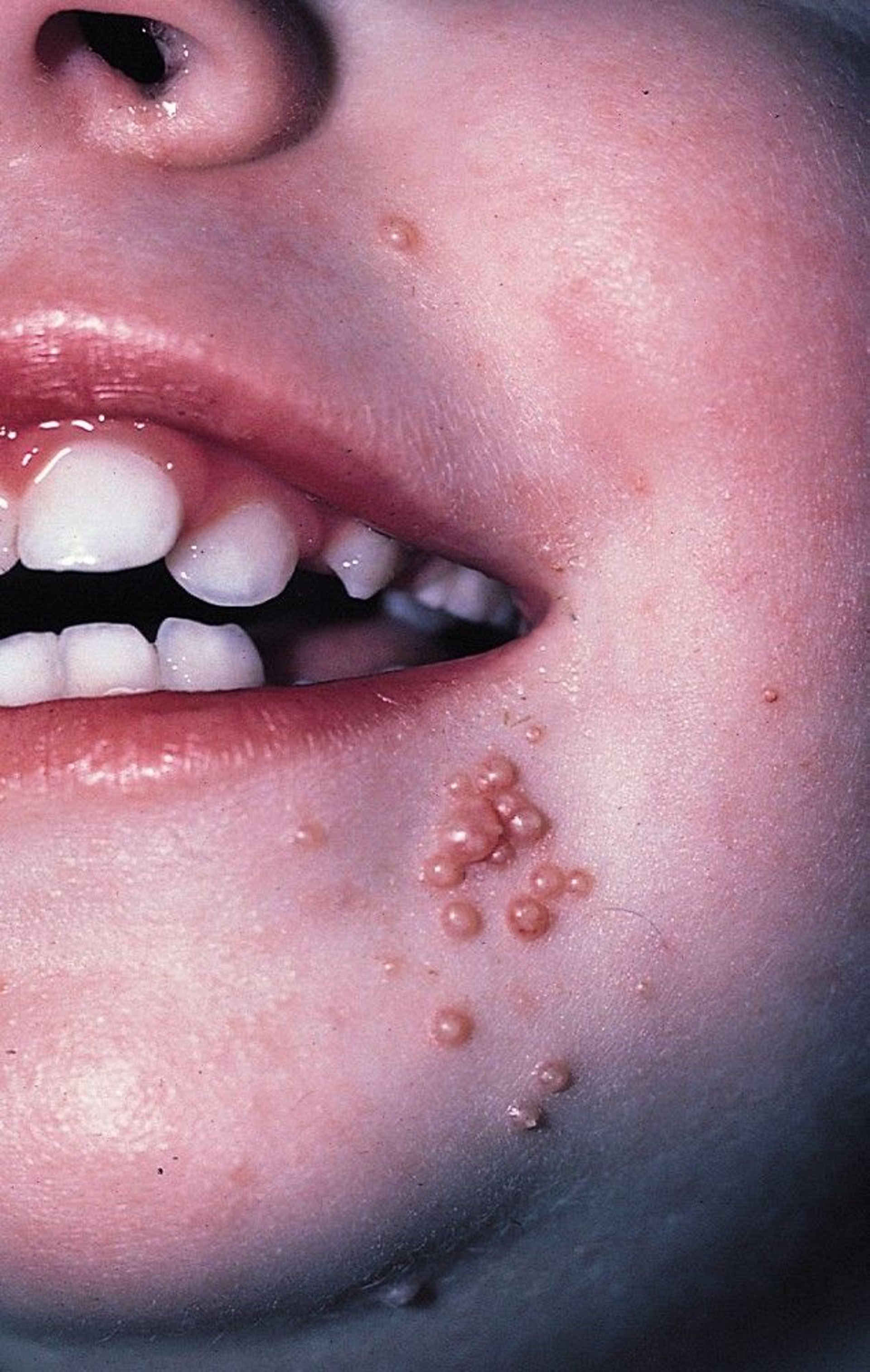Topic Resources
What is molluscum contagiosum?
© Springer Science+Business Media
Molluscum contagiosum is a skin infection that causes small pink or white dome-shaped bumps with a dimple in the center.
Molluscum contagiosum is caused by a virus and spreads easily from person to person
You can get molluscum contagiosum by touching an infected person’s skin, touching something after an infected person touched it, or in water, such as swimming pools
Molluscum contagiosum is common in children
People with a weak immune system (such as people with HIV/AIDS) can have more severe infections
The bumps usually go away on their own in a year or two, but can last up to 3 years
What are the symptoms of molluscum contagiosum?
The main symptom is:
Pink or white painless bumps less than a quarter inch (about 0.2 to 0.5 centimeters) across that are shaped like a dome with a dimple in the center
The bumps may get very red and itchy—sometimes this happens when they are about to go away. But if you scratch them, you can get more of them by spreading the virus on the skin around the bumps.
You can get bumps anywhere on your skin except the palms of your hands and bottoms of your feet.
Children with molluscum contagiosum often have bumps on their face, neck, chest, and armpits
Adults often have bumps on their penis, vulva, or on their thighs and lower part of their belly
How do doctors treat molluscum contagiosum?
Doctors usually don’t treat molluscum contagiosum because it goes away on its own in a year or two. But it can be treated if the bumps bother you. If you're an adult with bumps near your genitals, you should have them treated so you don’t spread them to sex partners.
Doctors may:
Remove them by freezing
Burn them with a laser or electric current
Remove the core of the bumps with a needle and scrape them off
Give you medicine as a cream to apply
How do you prevent molluscum contagiosum?
Cover bumps on children (for example with a bandage) so the bumps won't spread to others. Your child can still attend school or child care.
To keep molluscum contagiosum from spreading to other people:
Wash your hands often
Don't let anyone use your towel or other personal things
Keep bumps covered with a bandage, especially when you'll be in close contact with others


